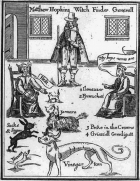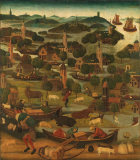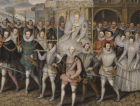Past event resources
Sort by:
Date (Newest first) | Title A-Z
Show:
All |
Articles |
Podcasts |
Multipage Articles
-

Virtual Branch Recording: Rebellion and Resistance of the Enslaved in the Atlantic World
ArticleClick to view -

Recorded webinar: Revisiting the witch trials
ArticleClick to view -

Virtual Branch Recording: Magna Carta
ArticleClick to view -

Witchcraft, Werewolves and Magic in European History: on-demand short course
Multipage ArticleClick to view -

Recorded webinar: Natural disasters in medieval Britain
ArticleClick to view -

Recorded webinar series: Jane Austen and Georgian England
Multipage ArticleClick to view -

Virtual Branch Recording: The Lines we Draw
ArticleClick to view -

Recorded webinar: Indian Suffragettes: women's activism in South Asia and beyond
ArticleClick to view -

Filmed Lecture: Medlicott Lecture 2025 - Dr Christine Counsell
ArticleClick to view -

Virtual Branch Recording: Food and drink in the medieval monastery
ArticleClick to view -

The impact and legacy of the First World War: on-demand short course
Multipage ArticleClick to view -

Virtual Branch: Birds and British History
ArticleClick to view -

Virtual Branch Recording: Women and the Reformations
ArticleClick to view -

Virtual Branch Recording: Poet, Mystic, Widow, Wife
ArticleClick to view -

Virtual Branch Recording: Locating and Mapping the Jews of Medieval Lincoln
ArticleClick to view -

Recorded webinar: Mapping uncertainty - Holocaust Memorial Day 2025
ArticleClick to view -

Virtual Branch Recording: The Fall of the English Republic
ArticleClick to view -

Virtual Branch Recording: Crusader Criminals
ArticleClick to view -

Recorded webinar series: The history that Shakespeare gave us
Multipage ArticleClick to view -

Virtual Branch Recording: The cultural world of Elizabethan England
ArticleClick to view

